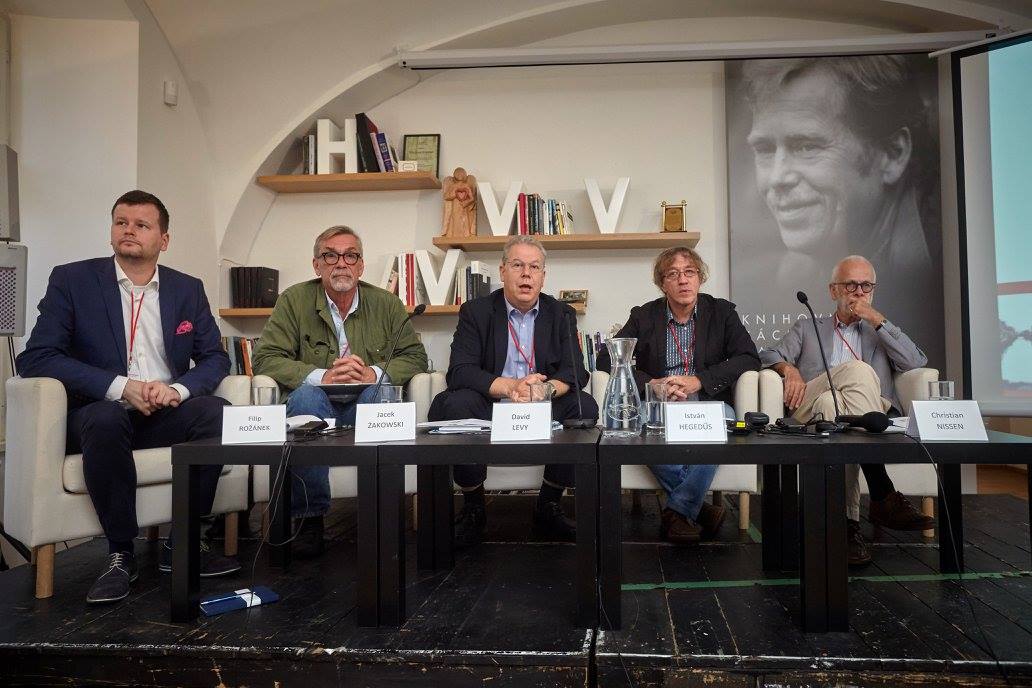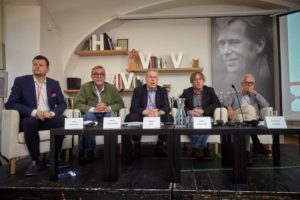Whose Media, Whose Interests?

Neredigovaný text mého vystoupení na úvod diskusního panelu "The Role and Independence of Public Service Media" na konferenci "Whose Media, Whose Interests?". Knihovna Václava Havla, 18. září 2016

Ladies and gentlemen,
At the beginning I would like to point out that there’s no real threat to the freedom of public service media in the Czech Republic. This statement may surprise you, because we do constantly listen our politicians doubting the role of Czech Television and Czech Radio in our society or quality of programmes they’re producing.
On the other side, that’s perfectly normal. They have to say something, they are politicians. We’ve seen this in many other countries including those in western Europe – the Tories in UK are just one example. Even social democrats in Germany are considering substantial changes to the organization of public service channels and party leaders suggest merging ARD and ZDF into one subject.
The only thing that makes a difference between us and our western colleagues is the overall lack of political culture. Rhetoric and proposals of Czech politicians regarding the public media often reminds me a lowland gorilla male roaring in the jungle and beating his chest. It’s more about seeking the dominant role in domestic politics than harming the public service media. It’s too easy to say that Czech Television or Czech Radio are bunch of liars and we should abolish them. People may applaud you. But those words are empty or – in the worst scenario – just a bad propaganda.
For more than 14 years I attend various media conferences and discussion platforms about the role of public service media. This topic is kind of evergreen and has its roots back in 1993. In other words, discussion about Czech public media is old as Czech Republic itself. In the past, different governments and individual politicians both came with proposals to sell or trim public TV and radio. There were efforts to cancel the licence fees paid by each household and then pay the radio and television by the special subsidy from the state budget.
However, none of those proposals succeeded and if it did, it has been never approved by the whole parliament.
There is even somewhat funny development since last parliamentary elections in 2013. One of the richest people in our country became a Finance Minister and the Deputy Prime Minister. Besides that, Mr. Andrej Babiš has a huge media power, because he owns influential media house, the most listened radio station and also a music TV for young people. Politicians scared by his influence rethink their former opinions on public media and even the right-wing conservatives now say there has to be done everything to protect Czech Television and Czech Radio from Mr. Babiš. They now act as if they protected public media since the beginning.
Magic, isn’t it?
Despite the rhetoric, the public service media developed, got stronger, have stable source of income and are trusted by the general public.
Even the introduction of digital broadcasting platforms wasn’t a menace to Czech TV or Czech Radio. Just on the contrary, they show higher ratings. Czech TV has six channels instead of two, including the most watched national news channel in the whole Europe. Czech Radio used to have three nationwide stations, now it has eight, half of them digital. When the Czech Radio launched its news channel, it earned tens of thousands of listeners in just a few months beating its direct commercial competitor.
And that brings us to the matter of market balance. None of the relevant political parties wants to destroy the public service. But especially on the small market, you have set some boundaries. Public service media simply can’t do everything, there has to be some space to run a business. The European Commission set the rules seven years ago, stating that you can’t spend public money on commercial projects, calling them “public service”. This directive will be implemented soon in Czech laws about TV and radio. Public service media will have to undergo a test of public relevance and market competition for each big project, especially if it’s digital or on-line.
Almost nobody wants to follow the path set by governments in Hungary or Poland. The World Press Freedom Index puts the Czech Republic on the 15th place between European countries and on 21st place in the whole world. On the other hand, Poland is on 47th place and Hungary even on 67th. I believe that we would like to get higher instead of lower. There is new law requesting members of government to leave the media business, just to prevent the concentration of political, economic and media power. And when you compare the broadcasting laws among the whole Europe, the Czech law is one of the most liberal.
From the Czech perspective, it looks like Czech TV and Czech Radio are constantly under fire. However, when I visited the meetings of European Broadcasting Union, I learned that Czech media are independent and progressive. If you don’t’ believe that, try to say to journalists in Italy or Spain how “bad” the situation here is. Few years ago, foreign journalists were surprised how easy is to get the prime minister and other important political figures into live broadcasting where they face questions from the general public.
Let me conclude my speech by a statement that we tend to see things more dramatic than they really are. Yes, we have to watch carefully the brilliant ideas of our politicians and yes, sometimes it’s difficult. But that’s the thing with democracy. Nobody said it will be easy: if you want independence, there has to be some work done.
Thank you for your attention and I’m looking forward to our discussion.